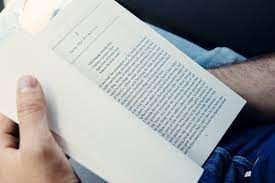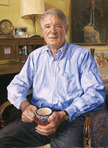Page One
In yesterday’s email, Harry Bingham , whose company, Jericho Writers, is running a First 500 Novel Competition, provided some feedback from his reading of the submissions. His comments all have to do with Page One, of course, which includes the first 500 words.
 “This last week, I’ve spent quite a bit of time looking at your opening chunks. A few things struck me, including how amazingly common it is for people to have multiple time threads on their very first page. Normally, we think a book starts at time T0, then proceeds in a logical sequence to time T100. Contemporary readers are, of course, well used to more complex schemes – multiple time strands, some flashbacks, perhaps a flashforward in a prologue and so on. But the only real purpose of your first page is to get your reader into your story-train. Unless your reader has chosen to embark with you, nothing else can happen. And it’s just astonishing how many impediments we writers put in the way of readers climbing on board. One of the most common issues is that people insert multiple timelines into their first page. So one (otherwise perfectly capable) opening chunk ran like something this: Para 1: Very short para saying what happened at the end of the conference, let’s say Sunday evening. Para 2: Step back to summarise the weekend that had just elapsed. Para 3: Step back to the Friday drinks reception. Para 4: Step back again to what arrival had been like on Friday morning. Written out like that, it’s nuts – but as I say, multiple timelines on the first page are genuinely common. And each time you shift the time, the reader has to mentally relocate. (“Where are we now? We were on Sunday night, I think, but we’re surely now talking about the weekend generally. OK, so yes, we’re in a new place. Righty-ho. Let’s see if I can make sense of what’s happening now.”) Each of those relocations is a small mental challenge to the reader and each of those challenges makes it more likely that the reader’s going to think, “You know, there are other books out there which are going to make me work less for the same rewards.” Perplexing chronology is a common problem. A lot of same-sounding names and relationships all laid out on page 1 is also challenging. Ditto anything without a clear physical setting (such as for example, the reflections of a character about something you don’t properly understand.) Or prologues than run to literally no more than 2-3 paragraphs, before the book starts all over again. The key question to ask yourself is simply this: am I making it easy or hard for a reader to enter my book and get to grips with it? If you are writing high-end literary work (and I mean the sort of stuff that could win the Booker Prize), you have my permission to make things complicated. In all other cases, you have to seduce your reader. Make their life easy and rewarding. And talking of which … If it sounds like writing Elmore Leonard famously said, that ‘if it sounds like writing, I rewrite it.’ I got a deeper appreciation of what he meant when I read your opening chunks last week. Part of the problem, I think, is that we have a “
First 500
” Novel Competition and those competitions encourage a somewhat flashy response.
“This last week, I’ve spent quite a bit of time looking at your opening chunks. A few things struck me, including how amazingly common it is for people to have multiple time threads on their very first page. Normally, we think a book starts at time T0, then proceeds in a logical sequence to time T100. Contemporary readers are, of course, well used to more complex schemes – multiple time strands, some flashbacks, perhaps a flashforward in a prologue and so on. But the only real purpose of your first page is to get your reader into your story-train. Unless your reader has chosen to embark with you, nothing else can happen. And it’s just astonishing how many impediments we writers put in the way of readers climbing on board. One of the most common issues is that people insert multiple timelines into their first page. So one (otherwise perfectly capable) opening chunk ran like something this: Para 1: Very short para saying what happened at the end of the conference, let’s say Sunday evening. Para 2: Step back to summarise the weekend that had just elapsed. Para 3: Step back to the Friday drinks reception. Para 4: Step back again to what arrival had been like on Friday morning. Written out like that, it’s nuts – but as I say, multiple timelines on the first page are genuinely common. And each time you shift the time, the reader has to mentally relocate. (“Where are we now? We were on Sunday night, I think, but we’re surely now talking about the weekend generally. OK, so yes, we’re in a new place. Righty-ho. Let’s see if I can make sense of what’s happening now.”) Each of those relocations is a small mental challenge to the reader and each of those challenges makes it more likely that the reader’s going to think, “You know, there are other books out there which are going to make me work less for the same rewards.” Perplexing chronology is a common problem. A lot of same-sounding names and relationships all laid out on page 1 is also challenging. Ditto anything without a clear physical setting (such as for example, the reflections of a character about something you don’t properly understand.) Or prologues than run to literally no more than 2-3 paragraphs, before the book starts all over again. The key question to ask yourself is simply this: am I making it easy or hard for a reader to enter my book and get to grips with it? If you are writing high-end literary work (and I mean the sort of stuff that could win the Booker Prize), you have my permission to make things complicated. In all other cases, you have to seduce your reader. Make their life easy and rewarding. And talking of which … If it sounds like writing Elmore Leonard famously said, that ‘if it sounds like writing, I rewrite it.’ I got a deeper appreciation of what he meant when I read your opening chunks last week. Part of the problem, I think, is that we have a “
First 500
” Novel Competition and those competitions encourage a somewhat flashy response. For what it’s worth, I doubt if any of my books ever would have been seriously considered for a prize in a “first 500” type competition. My books just don’t choose to reveal much in the first page and a bit. Why would they? But the problem goes deeper. Writers are tempted to write flashily, to show off, to draw praise. And, OK, none of us mind a bit of praise – but, please, not at the expense of clarity. So lots of you wrote something that had this kind of tenor: They were only kids, yes, but kids who could run the universe. Jake could ride the lip of the slide and fly. Crash landings happened sometimes, but even the bruises were proof of something. Jonno had his bruises too, from similar antics. Blood brothers. The universe twins.
Yes, there’s some flashy writing going on there. But what the hell does it mean? How does the reader get on board with a story, when it’s simply unclear what’s happening? Here’s the same kind of thing, delivered in a way that makes sense: It was the hardest trick in the playground, but Jake had mastered it. Ride the skateboard down the raised metal lip that formed the edge of the slide, then fly three or four feet through the air before hitting the scuffed-up dirt at its foot. Jake was confident now, though he’d collected enough bruises over those summer months … [and so on]
You’re more likely to elicit applause with the first of those two chunks, but you’re a damn sight more likely to get readers with the second. So when you’re writing your opening chunk – whether for Feedback Friday, or the First 500 Novel Competition , or just because you want to write a saleable book – please don’t ask, “Does this sound like great writing?”. Ask: Is this clear? Am I obstructing the reader? Can the reader get easily onto my story-train? If it sounds like writing, you really might want to rewrite it.
Published on August 05, 2023 06:59
No comments have been added yet.



